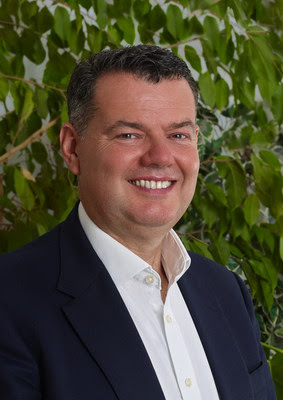حصلت شركة سينوبك (Sinopec) على أول شهادة بترول خالٍ من الكربون صادرة عن شركة شانغهاي للبيئة وتبادل الطاقة (SEEE)
شانغهاي, 23 سبتمبر 2021 — /PRNewswire/ أصدرت شركة شانغهاي للبيئة وتبادل الطاقة (SEEE) أول شهادة بترول خالٍ من الكربون لشركة سينوبك (HKG: 0386, “Sinopec“) وكوسكو للشحن (Cosco Shipping) وخطوط شرق الصين الجوية (China Eastern Airlines)، وذلك في حفل إصدار الشهادات لأول شحنة للصين من البترول الخالي من الكربون ذو دورة الحياة الكاملة، والذي تم عقده في 22 سبتمبر في شانغهاي بالصين.

اتخذت كل من شركة سينوبك وكوسكو للشحن وخطوط شرق الصين الجوية مزاياها الخاصة لتطوير ممارسة مبتكرة بشكل مشترك لبناء “نموذج جديد للنقل الأخضر”، واستكشاف مسار خالٍ من الانبعاثات وذو دورة كاملة عبر الصناعات – وهو ما يمثل أهمية بارزة في الوقت الذي تقوم فيه قطاعات النقل والطاقة بالصين بالترويج للوصول إلى ذروة انبعاثات الكربون وتحقيق الحياد الكربوني.
وقد تم إنتاج النفط الخام لمشروع البترول الخالي من الكربون هذا من حصة “شركة سينوبك الدولية للتنقيب عن وإنتاج البترول” من النفط في أنجولا، وتم استيراده من قِبَل يونيبيك (Unipec) وهي الذراع التجارية لـ سينوبك مع كوسكو للشحن باعتبارها الناقل. وقطعت شحنة النفط الخام أكثر من 9300 ميل بحري عبر المحيط الأطلسي والهندي والمحيط الهادئ، ووصلت إلى ميناء نينغبو تشوشان. كما تم نقل 30000 طن من النفط الخام في وقت لاحق إلى مصفاة شركة سينوبك جاوتشياو للبتروكيماويات.
ستُطلِق سينوبك رسميًا منتجات البنزين والديزل الخالية من الكربون للجمهور في محطات الوقود المحددة هذا العام. وفي أثناء ذلك، ستقوم سينوبك بتزويد خطوط شرق الصين الجوية بـ 5417 طنًا من وقود الطائرات من أجل عمل رحلات طيران خالية من الكربون كجهد مشترك.
ولتعويض انبعاثات الكربون الناتجة طوال دورة حياة شحنة النفط، نفذت كل من سينوبك وكوسكو للشحن وخطوط شرق الصين الجوية استراتيجيات توفير الطاقة والحد من الانبعاثات بشكل فعال، واشترت أرصدة كربون الحد من الانبعاثات المعتمد الصيني (CCER)، وتعاقدت مع SEEE باعتبارها هيئة إصدار شهادات الخلو من الكربون.

وقد دعا المشروع شركة اعتماد جمعية التصنيف الصينية (CCSC) باعتبارها وكالة تحقق تابعة لجهة خارجية لقياس ثاني أكسيد الكربون المنتَج طوال دورة الحياة بأكملها، بدءًا من استغلال ونقل وتخزين وتكرير النفط إلى استهلاك المنتَج بدقة، ثم تعويض الانبعاثات بالتساوي من أجل استكمال أول شحنة نفط خالٍ من الكربون في الصين.
لقد قامت الشركات الثلاث باستخدام مزاياها الخاصة من أجل الوصول إلى هدف مشترك. وأخذت شركة سينوبك على عاتقها مسؤولية تعويض انبعاثات الكربون الناتجة عن استغلال وتخزين ومعالجة ونقل المنتجات البترولية وبنزين وديزل المحركات واحتراق غاز البترول المسال؛ كما تعهدت كوسكو للشحن بمسؤولية تعويض انبعاثات الكربون الناتجة عن نقل النفط الخام واحتراق الوقود البحري؛ وأخذت خطوط شرق الصين الجوية على عاتقها مسؤولية تعويض انبعاثات الكربون الناتجة عن احتراق الكيروسين في الطائرات.
قال لينغ ييكون، نائب رئيس مجموعة سينوبك، “سينوبك ملتزمة بتحقيق تنمية صديقة للبيئة ومنخفضة الكربون. وقد حقق مشروع البترول الخالي من الكربون هذا حيادية الكربون من ‘المهد’ إلى ‘القبر’ مع كل قطرة نفط. كما أنه أول مسعى لتعويض انبعاثات الكربون تقوم به الشركات عبر ثلاث صناعات، وتحقيق تغطية كاملة لتحييد الكربون في النقل البري والبحري والجوي. هذا المشروع له تأثير إيجابي، وسنعمل على توفير طاقة أكثر أمانًا ونظافة وتنوعًا بينما نقوم بتلبية المتطلبات المستهدفة للوصول إلى ذروة الكربون وتحقيق حيادية الكربون”.
قطاع البترول لديه سلسلة عمليات طويلة مع عمليات تكنولوجية معقدة وصعوبات في حساب انبعاثات الكربون. في مواجهة المعايير الجديدة لذروة الكربون وحيادية الكربون ولكي تتماشى مع الاتجاه العام لانتقال الطاقة، يجب على صناعة النفط والغاز إيجاد اتجاه إنمائي جديد صديق للبيئة ومستدام ويقلل من الكربون والانبعاثات.
تعاونت سينوبك مع كوسكو للشحن وخطوط شرق الصين الجوية من أجل تنفيذ أول شحنة للصين من تجارة النفط الخالي من الكربون ذو دورة الحياة الكاملة، وقياس وتعويض انبعاثات الكربون بدقة من المشروع. وقد استكشفت هذه الشراكة مسارًا واضحًا لتحقيق تجارة النفط الخالي من الكربون من أجل إنشاء معيار صناعي ومثال يحتذى به لقيادة التنمية الخضراء والنظيفة للصناعة.
لمزيد من المعلومات، يُرجى زيارة سينوبك.


